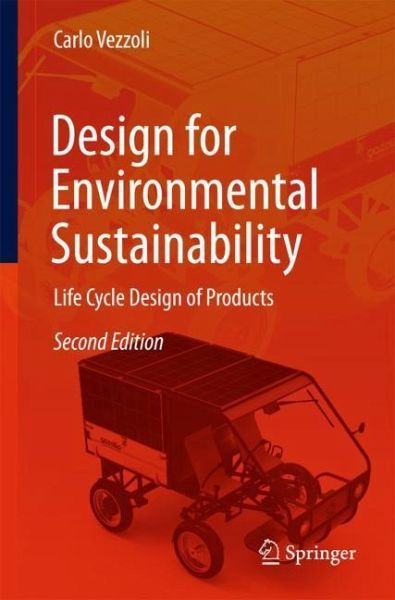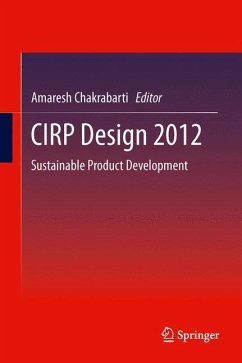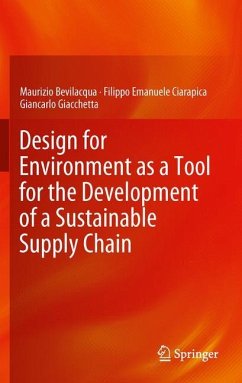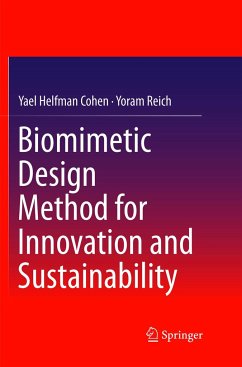
Design for Environmental Sustainability
Life Cycle Design of Products

PAYBACK Punkte
83 °P sammeln!
This book provides a comprehensive framework and practical tools to support environmentally sustainable design processes. It puts forward an articulated vision of methods, tools and strategies for the integration of environmental requirements into product development as part of the circular economy, and highlights potential strategies and design guidelines, accompanied by a large selection of high-quality, environmentally aware product design case studies.The book is divided into three parts. The first part of the book introduces and defines the outline and scenarios of sustainable development...
This book provides a comprehensive framework and practical tools to support environmentally sustainable design processes. It puts forward an articulated vision of methods, tools and strategies for the integration of environmental requirements into product development as part of the circular economy, and highlights potential strategies and design guidelines, accompanied by a large selection of high-quality, environmentally aware product design case studies.
The book is divided into three parts. The first part of the book introduces and defines the outline and scenarios of sustainable development and, within this framework, traces the evolution of sustainability in the design research and practice.
The second part, deals in-depth with the approach and strategies used to design and develop environmentally sustainable products. In particular, this section explains the Life Cycle Design approach, and the strategies and guidelines to minimize material consumption, minimise energy consumption, minimise resource toxicity and harmfulness, optimise resources renewability and bio-compatibility, optimise product lifespan, extend material lifespan and facilitate disassembly. In addition, the offering models in which it becomes very interesting - under an economic and competitive profile - to design products with a low environmental impact are also explained.
The third part presents the environmental impact of products, and the tools and methods for assessing it, with a specific focus on the Life Cycle Assessment together with the tools that have been developed to support product design for environmental sustainability. Finally, we find a description of the Method for Product Design for Environmental Sustainability (MPDS), and the tools that the DIS research unit (Design and system Innovation for Sustainability, Design Department, Politecnico di Milano) adopts when offering consultancy to firms with the aim of paving their way to the development of skills and tools related to the design of environmentally sustainable products.
In the appendix, the design strategies and guidelines are synthetically re-proposed, together with the environmental impact assessment tables.
Extensively rewritten for this new edition, the book is an important text for all students, designers and design engineers interested in product development processes.
The book is divided into three parts. The first part of the book introduces and defines the outline and scenarios of sustainable development and, within this framework, traces the evolution of sustainability in the design research and practice.
The second part, deals in-depth with the approach and strategies used to design and develop environmentally sustainable products. In particular, this section explains the Life Cycle Design approach, and the strategies and guidelines to minimize material consumption, minimise energy consumption, minimise resource toxicity and harmfulness, optimise resources renewability and bio-compatibility, optimise product lifespan, extend material lifespan and facilitate disassembly. In addition, the offering models in which it becomes very interesting - under an economic and competitive profile - to design products with a low environmental impact are also explained.
The third part presents the environmental impact of products, and the tools and methods for assessing it, with a specific focus on the Life Cycle Assessment together with the tools that have been developed to support product design for environmental sustainability. Finally, we find a description of the Method for Product Design for Environmental Sustainability (MPDS), and the tools that the DIS research unit (Design and system Innovation for Sustainability, Design Department, Politecnico di Milano) adopts when offering consultancy to firms with the aim of paving their way to the development of skills and tools related to the design of environmentally sustainable products.
In the appendix, the design strategies and guidelines are synthetically re-proposed, together with the environmental impact assessment tables.
Extensively rewritten for this new edition, the book is an important text for all students, designers and design engineers interested in product development processes.












